PUBLICATIONS
Discover the work of our talented researchers
"It's by logic that we prove, but by intuition that we discover " – Henri Poincaré
+
40
PhDs
450
Citations
37
Publications
8
Research teams
{{ item.title }}
Our research teams
Quandelians are a multidisciplinary, International and talented group of high-performing professionals who approach problems from different perspectives. We think Quandela is a unique place to work. Our team casts a wide net across many locations, lifestyles and backgrounds. Together we create a working environment that feels safe for everyone. We always welcome and respect individuality – reinforcing the importance of a diverse team that is nurtured to grow and evolve.
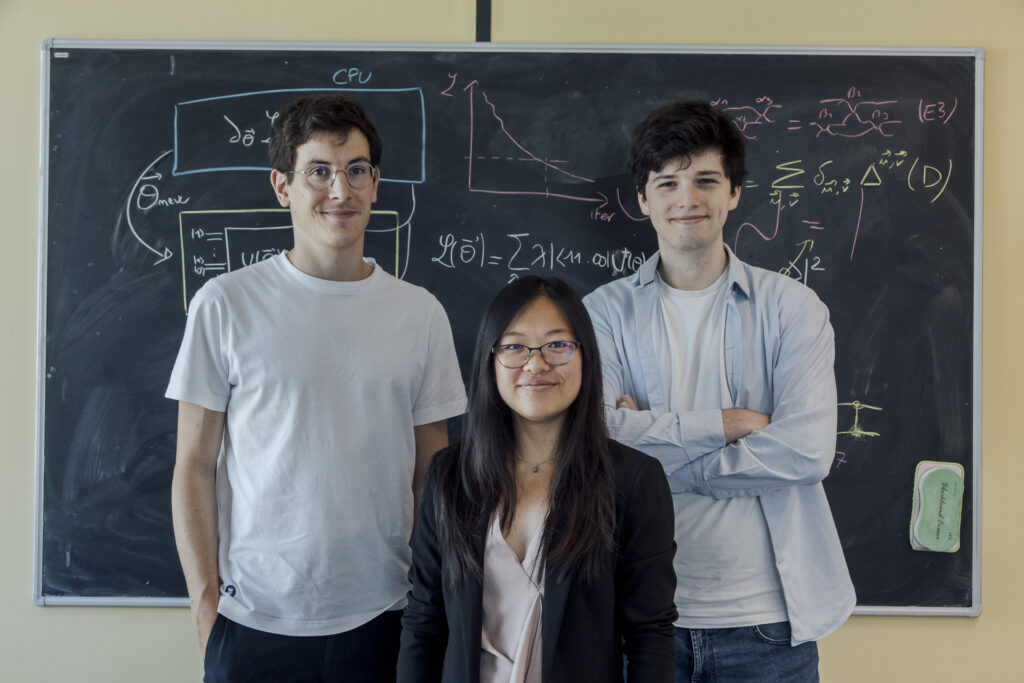
Research – Algorithms
The Algorithms Team develops, optimizes, and implements cutting-edge quantum algorithms tailored to Quandela's hardware. They focus on driving applications and innovations in photonic quantum computing, bridging the gap between theoretical potential and practical implementation.
“Photonic quantum algorithms transform the potential of quantum mechanics into actionable insights, unlocking the power of photons to solve intricate challenges and illuminate the way for tomorrow's quantum breakthroughs.”
Pierre-Emmanuel Emeriau – Head of Algorithms Team
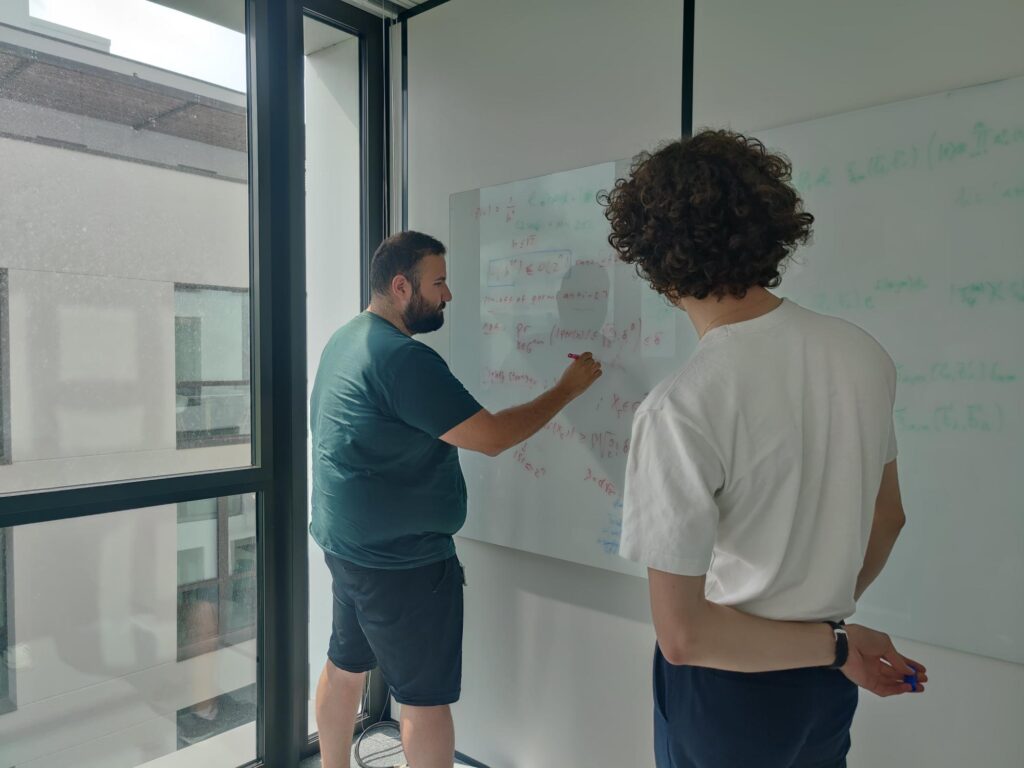
Research – Device Theory
The Device Theory Team enhances device performance through rigorous theoretical models, computational simulations, error mitigation protocols, and benchmarking techniques. They apply advanced mathematics to refine experiments and push the boundaries of quantum device performance.
"Mathematics sharpens our understanding of physics, turning fundamental quantum laws into tools for advancing hardware, refining experiments, and pushing the boundaries of quantum device performance."
Stephen Wein – Head of Device Theory Team
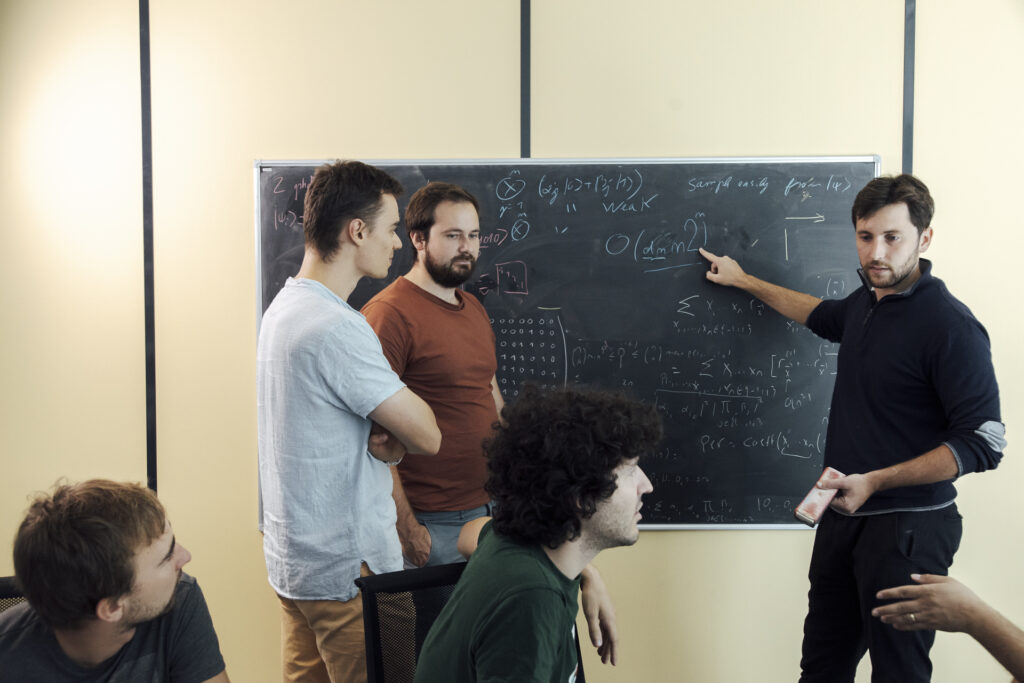
Research – Scalable Architecture
The Scalable Architecture Team investigates methods to arrange and operate Quandela's cutting-edge hardware for large and trustworthy quantum computations. They work on bridging complicated physics with abstract computer science to optimize quantum operations in both current and future error-corrected systems.
“A good architecture is a bridge between complicated physics and abstract computer science. It orchestrates spins and photons to execute computations for as long as possible and on as many qubits as possible, both in the present pre-fault-tolerant world and in the error-corrected future."
Boris Bourdoncle – Head of Scalable Architecture Team
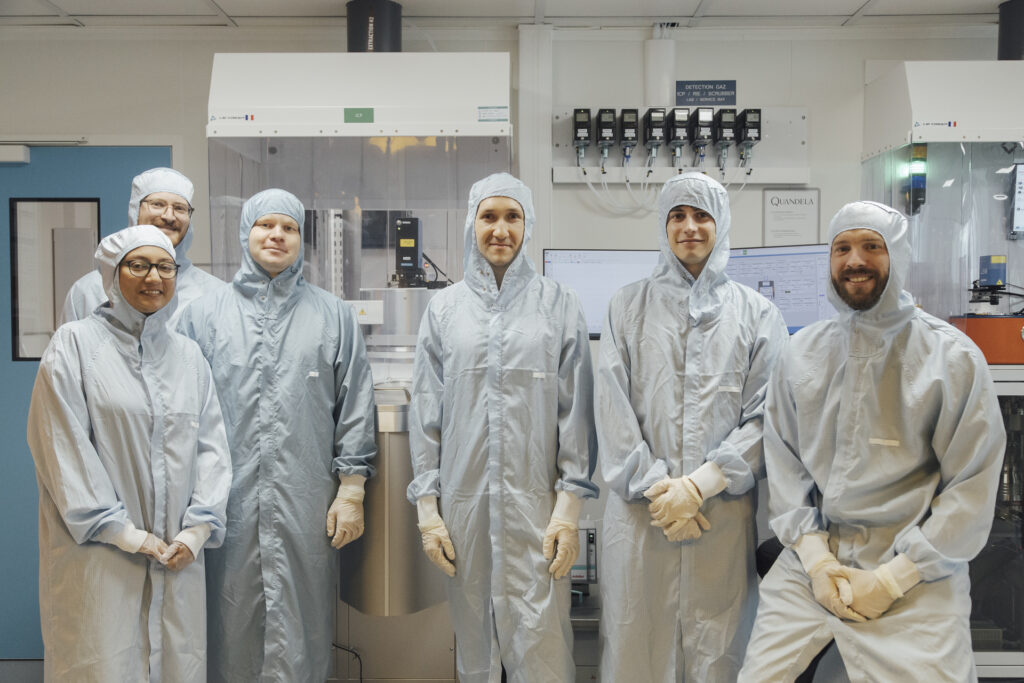
Research – Semiconductors
The Research Semiconductors Team focuses on developing innovative approaches to optimize semiconductor single-photon source performance. They explore novel source designs and advanced addressing schemes, aiming to produce high-performance single-photon sources at a large scale for fault-tolerant photonic quantum computing systems.
"Our goal is to pursue new methods for creating large entangled states of photons with high probability and fidelity. As a key part of the joint laboratory formed by Quandela and the C2N, the team also serves as an important connection between Quandela and the academic GOSS group led by Pascale Senellart."
Sébastien Boissier – Head of Research Semiconductors Team

Quantum Applications
The Quantum Applications Team bridges the gap between industry use-cases, state-of-the-art quantum computing algorithms, and product integration. They develop trust in photonic quantum applications for real-world problems by designing and enhancing cutting-edge algorithms, supporting clients in their quantum transformation journey.
"We support our clients in their quantum transformation. We give classes about photonic quantum computing, identify use-cases in the client's industry and develop proof-of-concept that then evolve in an in-production algorithm. All those ingredients are crucial for big companies to make their quantum transformation successful."
Arno Ricou – Head of Quantum Applications Team
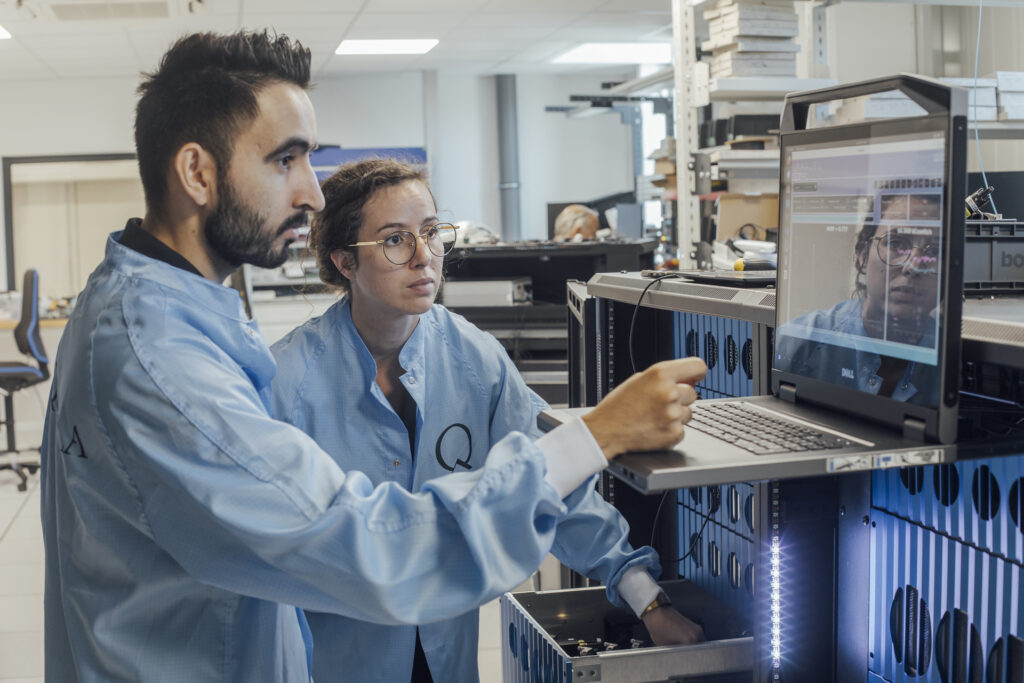
Products – Optics, Electronics and QPU Assembling
The Team develops cutting-edge optical systems and optimal control methods for photonic quantum computing. They integrate and assemble these components to create MosaiQ – data center-ready quantum processing units. The team's work is crucial in advancing the scalability and efficiency of photonic quantum computers.
“The scalability of photonic quantum computers hinges on our ability to manufacture complex opto-electronic systems. As we push the boundaries of photonic integrated circuits fabrication, we're not just scaling up qubit numbers, but also enhancing the precision and efficiency of quantum operations. The transition to large-scale manufacturing of these intricate systems will be the key to unlocking the full potential of photonic quantum computing."
Nicolas Maring – Head of Optics, Electronics and QPU assembling Team
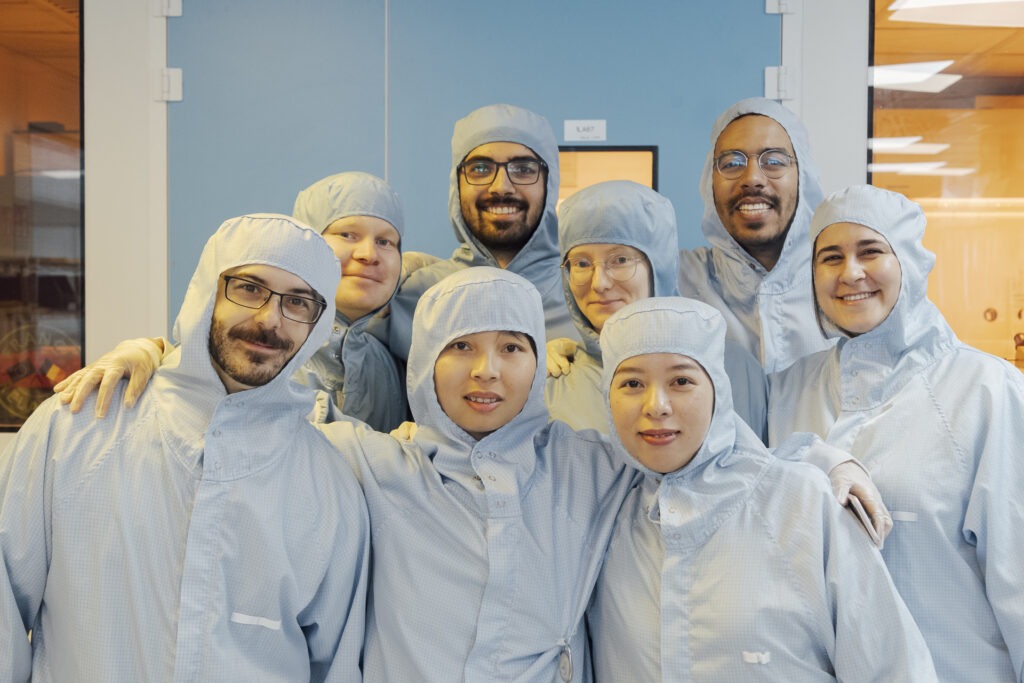
Products – Semiconductor Sources Production
The Semiconductor Sources Production team produces one of the world's brightest quantum single-photon sources using cutting-edge nanofabrication technologies. In each quantum computer, their source serves as the heart, delivering single photons through the fiber channels and circuits of the QPU. Just as there's no substitute for a heart, their photon source is irreplaceable!
"Competing and embracing yourself every day is the art of making everything better !"
Thi Huong Au – Head of Semiconductor Sources Production Team
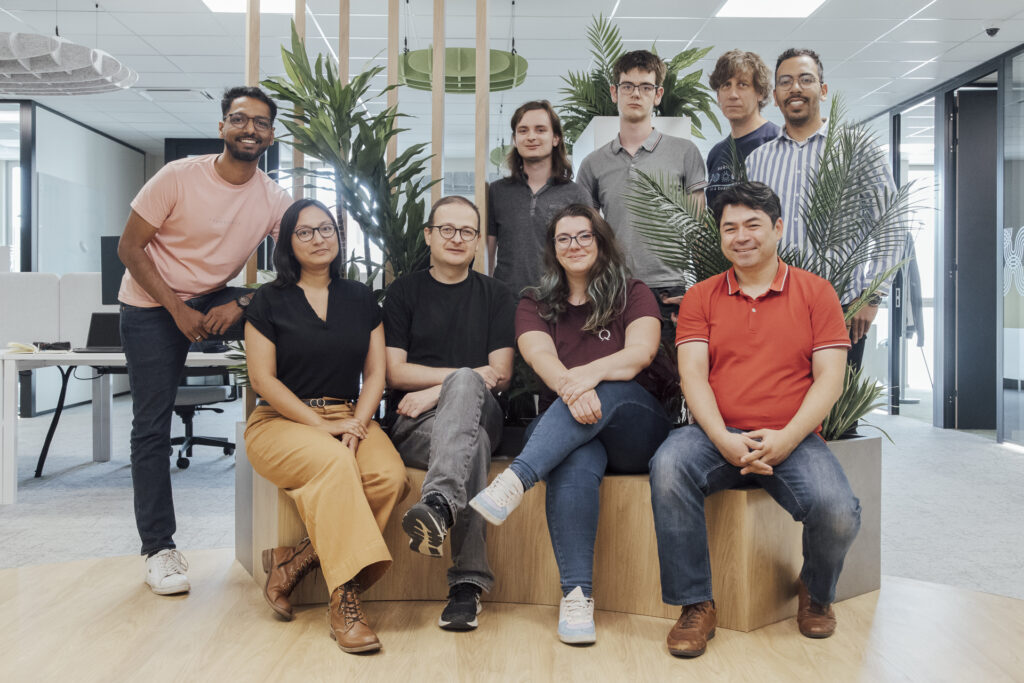
Software
The Software Engineer Team develops the quantum computing framework Perceval and manages Quandela's web and cloud infrastructure. They play a dual role: leading software production with regular Perceval releases and new customer APIs, while also providing internal support to other teams through tool development and code reviews.
"People imagine that driving a quantum computer is something extremely complicated, and this is partly true. In our team, we're in the business of transforming this into “just” a complex operation, with each element simplified as far as possible. This involves using Python, then sending a computation order via the web to our quantum computers or optimized simulators."
Mario Valdivia – Head of Software Engineer Team
